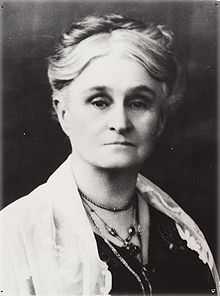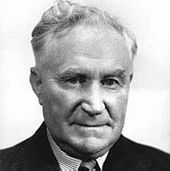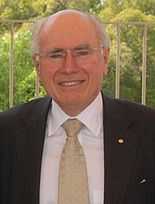English Australian
| |||||||||
| Total population | |||||||||
|---|---|---|---|---|---|---|---|---|---|
| 7,238,500 (ancestry, 2011)[1] | |||||||||
| Languages | |||||||||
| Australian English | |||||||||
| Religion | |||||||||
| Christianity (Anglicanism and Catholicism) and irreligious | |||||||||
| Related ethnic groups | |||||||||
| English, British, British American, English American, British Canadian, English Canadian | |||||||||
|
| |||||||||
English Australians, also known as Anglo-Australians[5] are Australians of English descent, are both the single largest ethnic group in Australia and the largest 'ancestry' identity in the Australia Census, and put together with "Australian" (which is in fact, an unknown number of English Australians) they make up more than half of the population.[6]
In the 2011 census, 7.2 million or 36.1% of respondents identified as "English" or a combination including English, such as English-Australian. The census also documented 910,000 residents of Australia as being born in England.[7][8]
English Australians have more often come from the south than the north of England.[9]
History of English Australians
1788–1850
Sydney was founded by the British government as a penal colony. Visitors described the English character of Sydney for at least the first 50 years after 1788, noting the traditional English appearance of the churches overlooking the convict barracks. First-generation Sydney residents, other than the disappearing Aborigines, were predominantly English. 160,000 convicts came to Australia between 1788 and 1850.[10] Between 1788 and 1840, 80,000 English convicts were transported to New South Wales, with the greatest numbers coming between 1825 and 1835. The New South Wales Census of 1846 accounted for 57,349 born in England, 47,547 born in Ireland, and 14,406 born in Scotland.[4]
Notable English convicts transported to Australia
- James Blackburn – Famous for contribution to Australian architecture and civil engineering.
- William Bland – naval surgeon transported for killing a man in a duel; he prospered and was involved in philanthropy, and had a seat in the legislative assembly.[11]
- William Buckley – famously escaped and lived with Aboriginal people for many years.
- John Cadman – had been a publican, as a convict became Superintendent of Boats in Sydney; Cadmans Cottage is a cottage granted to him.
- Daniel Cooper – successful merchant.
- Margaret Dawson – First Fleet, "founding mother".
- William Field (Australian pastoralist) – notable Tasmanian businessman and landowner.
- Francis Greenway – famous Australian architect.
- William Henry Groom – successful auctioneer and politician, served in the inaugural Australian Parliament.
- William Hutchinson – public servant and pastoralist.
- Mark Jeffrey – wrote famous autobiography.
- Henry Kable – First Fleet convict, arrived with wife and son (Susannah Holmes, also a convict, and Henry) filed 1st lawsuit in Australia, became wealthy businessman.
- Simeon Lord – pioneer merchant and magistrate in Australia.
- Nathaniel Lucas – one of first convicts on Norfolk Island, where he became Master carpenter, later farmed successfully, built windmills, and was Superintendent of carpenters in Sydney.
- Isaac Nichols – entrepreneur, first Postmaster.
- William Redfern – one of the few surgeon convicts.
- Mary Reibey – operated a fleet of ships.
- Henry Savery – Australia's first novelist; author of Quintus Servinton.
- Robert Sidaway – opened Australia's first theatre.
- William Sykes – historically interesting because he left a brief diary and a bundle of letters.
- John Tawell – served his sentence, became a prosperous chemist, returned to England after 15 years, and after some time murdered a mistress, for which he was hanged.
- Samuel Terry – wealthy merchant and philanthropist.
- James Hardy Vaux – author of Australia's first full length autobiography and dictionary.
- Mary Wade – Youngest female convict transported to Australia (11 years of age) who had 21 children and at the time of her death had over 300 living descendants.
- Joseph Wild – explorer.
- Solomon Wiseman – merchant and operated ferry on Hawkesbury River hence town name Wisemans Ferry.
1850-present
Until 1859, 2.2 million (73%) of the free settlers who immigrated were British.[12]
Many more English people immigrated to Victoria by the gold rush of the 1850s. By 1854 there were 97,943 England-born people in Victoria. Immigration policies and assistance schemes helped maintain high levels of immigration from England. Of the 1 million immigrants who arrived between 1860 and 1900, just over half came from England.[13]
When transportation ended, convicts made up 40 percent of Australia's English-speaking population.[14]
Between 1840 and 1870 there were more Irish than English assisted migrants which did not change until the 1870s, when there were more English.[4]
Australians born in England or of English ancestry made up more than 50 percent of the population at the time of Federation (1901).[15] From 1922 the Empire Settlement Act assisted thousands of migrants from England. After World War II, even as immigration from other countries expanded dramatically, English citizens had almost unrestricted entry into Australia. Arthur Calwell, Minister for Immigration, wanted nine out of ten new immigrants to be UK-born.[13] The majority of England-born migrants received assisted passages until the scheme was abolished in 1982. In 2006 the English were still the largest group of overseas-born in Victoria, with over 3% of Victorians born in England.[13]
Among the notable English-born were politicians such as Henry Parkes, and Joseph Cook; in retailing and media: John Norton, Anthony Hordern and John Fairfax.[4]
Surges of English immigration in the 1880s, between 1910 and 1914, again in the 1920s and, most of all, in the 1950s and 1960s, sustained the English-born as the largest single immigrant group.[4]
In 1978 Australians born in England or Australians of predominantly English ancestry made up over 45 per cent of the population.[16]
English ancestry was reported by 6.6 million people (46%) in 1986, and 6.4 million (37%) in 2001.[17]
The United Kingdom continues to be a major source of permanent migrants to Australia. In 2005–06 the country was the largest source of migrants ahead of New Zealand, China and India.[18] English people remain the largest group amongst those born abroad in Sydney.[5]
Influence
English migrants and English Australians were by far the single most influential ethnic group in colonial Australia.[19] The founding of Australia by English people is still evident in place names, buildings and street layouts, and that 80 percent of the population speak English as their mother tongue and the Low Church hegemony in the Anglican Diocese of Sydney, the biggest in the country.
In Sydney, at least 50 suburban names are derived directly from 20 English counties, of which the largest numbers are from Kent, Surrey, and London. Among the best known are Surry Hills, Croydon, Hornsby, Penrith, Chipping Norton, Brighton-le-Sands, Bexley, Canterbury, Ryde, Kensington, Epping, St Ives, Lewisham and Penshurst.[5]
Prime Ministers of English descent
Many of the Prime Ministers of Australia have English ancestry. The extent of English Heritage varies, with earlier Prime Ministers being predominantly of English stock.
- Edmund Barton, 1st Prime Minister 1901–1903 (English parents.[20])
- Alfred Deakin, 2nd Prime Minister 1903–1904, 1905–08, 1909–10 (English parents.[21])
- Joseph Cook, 6th Prime Minister 1913–14 (Born in Silverdale, Staffordshire, England.)
- Earle Page, 11th Prime Minister 1939 (Father from London, England.[22])
- Harold Holt, 17th Prime Minister 1966–67 (English descent.)
- John Gorton, 19th Prime Minister 1968–71 (English father.[23])
- Gough Whitlam, 21st Prime Minister 1972–75 (English descent.[15])
- Bob Hawke, 23rd Prime Minister 1983-91 (English descent.)
- John Howard, 25th Prime Minister 1996–2007 (English descent.)
- Kevin Rudd, 26th Prime Minister 2007–10, 2013 (His 4th great-grandparents, convicts Thomas Rudd from London and Mary Cable from Essex, England.)
- Tony Abbott, 28th Prime Minister 2013- (English father; born in London, England of English, Dutch, Scottish and Welsh descent[24])
See also
- Anglo-Africans
- English diaspora
References
- ↑ (Ancestry) The 2011 Australian Census reports 7,238,500 people of English ancestry.
- ↑ "From Hope to Disillusion? A Literary and Cultural History of the Whitlam Period, 1966–1975, Chapter 1: Reading Whitlam and Whitlamism: The Role of Ideology" (PDF). Victoria University. Retrieved 4 February 2014.
The main characters of all three novels [The Solid Mandala, The Vivisector, and The Eye of the Storm] are explicitly English-Australians, suggesting White’s central identification with this cultural grouping..
- ↑ "In pictures: famous poms in Australia". The Daily Telegraph (London). 7 November 2011.
- ↑ 4.0 4.1 4.2 4.3 4.4 "Dictionary of Sydney: The English".
- ↑ 5.0 5.1 5.2 The English in Sydney, Sydney Journal, 2008
- ↑ "Reflecting a Nation: Stories from the 2011 Census, 2012–2013". Australian Bureau of Statistics. 21 June 2012. Retrieved 25 June 2012.
- ↑ "Australia 2011 census demographic breakdown table, Bloomberg.com".
- ↑ 2006 Census QuickStats : Australia. censusdata.abs.gov.au
- ↑ J. Jupp, The English in Australia, Cambridge University Press, 2004, p. 103
- ↑ "Australia's founding felons get a long-delayed pardon". The New York Times. 19 November 1982.
- ↑ D. Richards 'Transported to New South Wales: medical convicts 1788–1850' British Medical Journal Vol 295, 19–26 December 1987, p. 1609
- ↑ HISTORICAL RECORDS REVEAL OZ ANCESTORS OF 16 MILLION BRITS
- ↑ 13.0 13.1 13.2 "History of immigration from England, Immigration Museum, Melbourne, Australia".
- ↑ Ancestry.com Launches Largest Online Collection of Records Documenting Australia's Convicted 'Founding Fathers'
- ↑ 15.0 15.1 James Jupp (1 October 2001). The Australian People: An Encyclopedia of the Nation, Its People and Their Origins. Cambridge University Press. pp. 336–. ISBN 978-0-521-80789-0. Retrieved 17 March 2012.
- ↑ The Australian encyclopaedia, Volume 4, Grolier Society of Australia, 1983, p. 35
- ↑ Australian Social Trends, 2003
- ↑ "Migration: permanent additions to Australia's population". 4102.0 – Australian Social Trends, 2007. Australian Bureau of Statistics. 7 August 2007. Retrieved 30 May 2008.
- ↑ Cronin, Mike, and David Mayall, eds. Sporting Nationalisms: Identity, Ethnicity, Immigration and Assimilation. Routledge, 2005, p. 22.
- ↑ Edmund Barton. Nma.gov.au. Retrieved on 2012-03-17.
- ↑ Australia's Prime Ministers. Primeministers.naa.gov.au (1902-03-18). Retrieved on 2012-03-17.
- ↑ Earle Christmas Grafton Page. Adbonline.anu.edu.au. Retrieved on 2012-03-17.
- ↑ Christopher Zinn Obituaries: Sir John Gorton. The Guardian. 21 May 2002
- ↑ Tony Abbott. Retrieved on 2013-10-2013.
| ||||||||||||||||||||||||
| ||||||||||||||||||||||||||||||||||||||||||
| ||||||||||||||||||
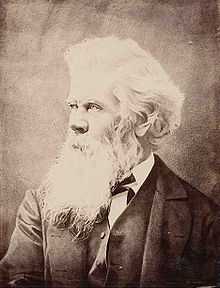
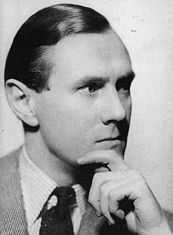
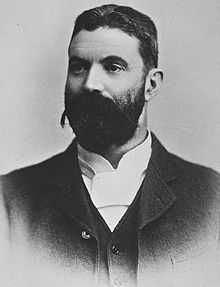
.jpg)
